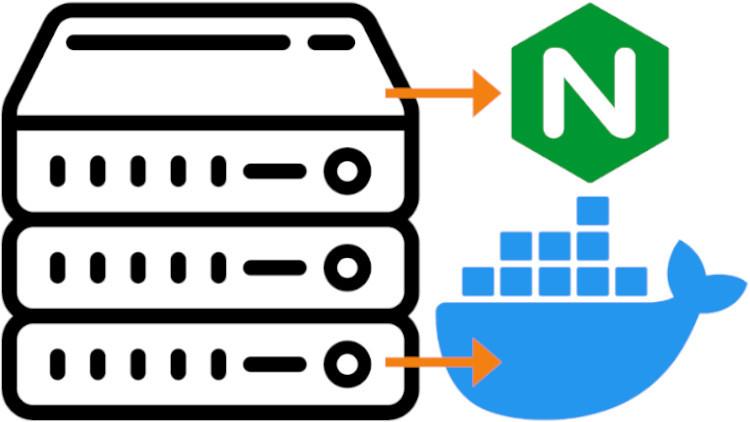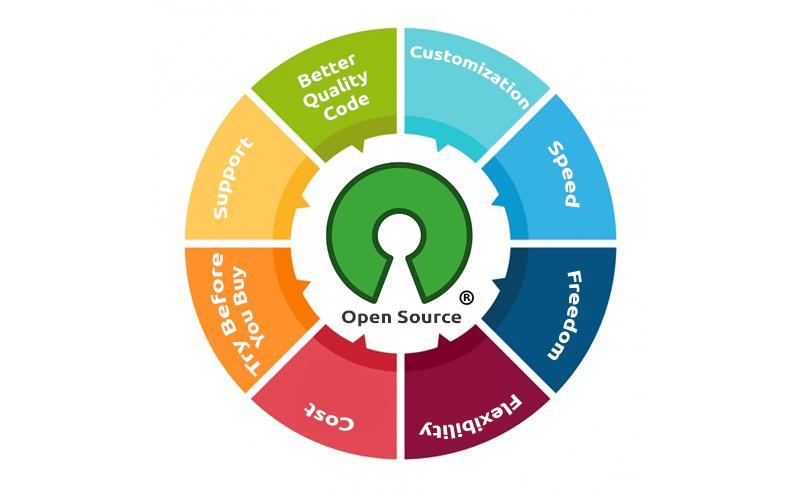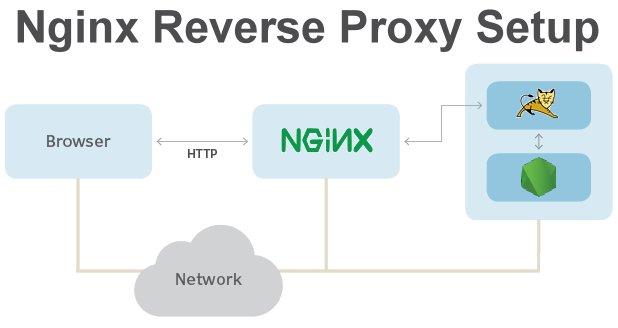When it comes to building and managing web servers, two names always seem to rise to the top of the conversation: Nginx and Apache. Each of these powerful tools brings its own unique strengths to the table, making them favorites among developers and system administrators alike. But with so many options out there,how do you decide which web server is truly the best for your needs? In this article,we’ll dive into the nitty-gritty of Nginx and Apache,exploring their features,performance,and ease of use. Whether you’re launching a new website, optimizing an existing one, or simply curious about the tech behind the scenes, we’re here to help you navigate this critical choice. Stick around as we break it down, and by the end, you’ll have a clearer picture of which web server might be the perfect fit for your next project!
Understanding the Basics of Nginx and Apache
When it comes to choosing a web server, two heavyweights often come to mind: Nginx and Apache. Both are popular choices with their own unique sets of features, strengths, and weaknesses. Understanding the basics of how each server operates can significantly influence your decision, especially when it comes to performance, scalability, and resource consumption.
Apache has long been a staple in the web server market. Known for its robust architecture, it excels in handling dynamic content. It operates on a process-driven model, meaning that each request is handled by a separate thread or process. This design allows for grate versatility and extensive customization, as developers can utilize a variety of modules to extend its functionality. However, this can also result in higher memory usage, particularly under heavy traffic conditions. here are some of its key features:
- Extensive Module Support: A plethora of modules for added functionality.
- .htaccess Support: Allows for decentralized configuration, giving more control to individual directories.
- Customizable: Highly configurable to fit specific needs.
On the other hand, nginx emerged as a solution to some of Apache’s limitations, particularly in handling concurrent connections.It utilizes an event-driven architecture, which allows it to manage multiple requests within a single thread. This makes Nginx particularly efficient in serving static content and handling high levels of traffic without consuming excessive resources. Its lightweight nature and speed have made it a popular choice for modern web applications. Key benefits include:
- High Performance: Excellent handling of static files and high concurrency.
- Low Resource Consumption: Uses fewer resources than Apache under heavy load.
- Reverse Proxy Capabilities: Ideal for load balancing and caching.
| Feature | Apache | Nginx |
|---|---|---|
| Architecture | Process-driven | Event-driven |
| Dynamic Content | Strong support | Limited support |
| static content | Adequate | Excellent |
| Memory Usage | Higher | Lower |
| Configuration | Flexible | Simpler |
the choice between Nginx and Apache often comes down to specific use cases. If your site heavily relies on dynamic content and requires extensive customization, Apache might potentially be your best bet. Conversely, if you anticipate high traffic and need a server that efficiently handles static content with minimal resource usage, Nginx could be the ideal fit. Understanding these fundamental differences will empower you to make an informed decision tailored to your web hosting needs.

Unveiling Performance: Speed and Resource Efficiency Comparison
When it comes to web servers, the debate between Nginx and Apache often pivots on performance metrics. speed and resource efficiency are paramount for web applications, especially as traffic scales. Both servers have their strengths, but understanding how they handle requests can help you make an informed choice.
Nginx is designed to handle a large number of simultaneous connections with minimal resource consumption. Its asynchronous architecture allows it to serve static content rapidly and efficiently,making it a popular choice for high-traffic sites. In contrast, apache’s conventional process-based model means it can consume more resources under load, which can lead to slower response times as traffic increases.
To illustrate the differences, consider the following performance benchmarks for typical workloads:
| Metric | Nginx | Apache |
|---|---|---|
| Max Concurrent Connections | Over 10,000 | Up to 5,000 |
| Static File Serving Time | 0.1 ms | 0.5 ms |
| Memory Usage (Idle) | 10 MB | 50 MB |
Another aspect to consider is resource allocation. Nginx excels in environments where resources are limited, due to its low memory footprint and efficient handling of requests. This can translate into cost savings, especially for businesses operating on tight budgets or those utilizing cloud-based services with pay-as-you-go pricing models. On the flip side, Apache’s flexibility with modules comes at a cost; each active module can increase server overhead and resource usage.
Ultimately, the choice between Nginx and Apache may boil down to your specific use case. If you’re prioritizing speed and efficiency, especially for serving static content, Nginx is likely the better option.However, if you require extensive customization and module support, Apache might still hold its ground as a viable choice. In the fast-evolving landscape of web technologies,aligning your server choice with your performance needs is crucial for delivering an optimal user experience.
How Scalability Shapes your Web Server Choice
When it comes to web server selection, scalability stands out as a crucial factor that can significantly impact your site’s performance and growth potential. Both Nginx and Apache are popular choices, but their approaches to handling increased traffic and resource demands differ remarkably.
Nginx is designed with scalability in mind. it operates on an event-driven architecture, which allows it to handle multiple connections concurrently without consuming a significant amount of memory. This makes Nginx an ideal choice for high-traffic websites, as it can scale efficiently while maintaining low overhead. As your traffic grows, you can easily deploy additional Nginx instances to manage the load without needing to invest heavily in hardware resources.
On the other hand, Apache uses a process-driven model, which can be resource-intensive as traffic increases. Each connection requires a new thread or process, leading to higher memory consumption. While Apache can certainly be configured to handle increased traffic, it may not scale as gracefully as Nginx under heavy load. This performance constraint can become a bottleneck for rapidly growing websites.
consider the following points when evaluating scalability:
- Resource Efficiency: Nginx’s lightweight architecture allows for better resource utilization.
- Concurrent Connections: Nginx can handle thousands of concurrent connections with minimal resources.
- Configuration Flexibility: Both servers offer flexibility, but nginx shines in handling static content efficiently.
To visualize the differences in scalability, let’s take a look at a simple comparison table:
| Feature | Nginx | Apache |
|---|---|---|
| Architecture | Event-driven | Process-driven |
| Memory Consumption | Low | High |
| Concurrent Connections | Very High | Limited |
| Static content Handling | Excellent | Good |
Ultimately, if your project demands high scalability and performance, Nginx might potentially be the better option. However, if you require extensive features or modules that Apache provides, and you’re prepared to manage the associated resource demands, Apache could still meet your needs effectively. Understanding how each server handles scaling will empower you to make an informed decision that aligns with your site’s future growth plans.

Security Features: Protecting Your Website with Nginx and apache
When it comes to securing your website, both Nginx and Apache offer robust features that can significantly enhance your site’s protection against various threats. While both web servers have their unique strengths, understanding how they handle security can definitely help you make an informed decision.
nginx is known for its lightweight architecture,which not only improves performance but also minimizes exposure to vulnerabilities. It includes several built-in modules that can help you secure your request:
- DDoS protection: Nginx can be configured to limit the number of connections and requests from a single IP address, making it harder for attackers to overwhelm your server.
- SSL/TLS support: Nginx facilitates easy configuration of SSL certificates, ensuring secure data transmission between the server and clients.
- Access control: The server allows you to restrict access based on IP addresses, user agents, and other criteria, ensuring that only authorized users can reach sensitive areas of your site.
On the other hand, Apache has its own set of advantages when it comes to security features. Its modular architecture allows for greater flexibility in implementing various security measures:
- ModSecurity: This open-source web application firewall (WAF) can be integrated with Apache to monitor and filter HTTP traffic, providing an additional layer of security against threats like SQL injection and cross-site scripting.
- Access control and authentication: Apache enables sophisticated configurations for user authentication, ensuring that sensitive directories are only accessible to authorized personnel.
- URL rewriting: This feature can be used to hide the actual URLs of scripts and files, making it harder for attackers to target specific vulnerabilities.
| Feature | Nginx | Apache |
|---|---|---|
| DDoS Protection | ✔️ | No |
| SSL/TLS configuration | ✔️ | ✔️ |
| ModSecurity Support | no | ✔️ |
| Access Control | ✔️ | ✔️ |
Ultimately, the choice between Nginx and Apache for security features depends on your specific needs and technical expertise. While Nginx shines in performance and built-in security measures,Apache offers greater flexibility through its extensive modules. Choosing the right server can safeguard your website and enhance its overall resilience against potential cyber threats.
Configuration Complexity: Which Server Is Easier to Manage?
When it comes to server management, the complexity of configuration can make or break your experience. Both Nginx and Apache offer powerful capabilities, but the ease of management can vary significantly between the two. Understanding these differences is crucial for making an informed choice that aligns with your technical skills and project needs.
Apache is known for its flexibility,allowing for a wide range of modules and configurations. Though,this flexibility can lead to a steeper learning curve,especially for newcomers. The .htaccess files, while powerful, can introduce additional complexity, particularly in shared hosting environments. Here are some factors to consider:
- Configuration Files: apache’s configuration is often more verbose, requiring careful attention to detail.
- Module Management: Adding and managing modules can be cumbersome and may require server restarts.
- Performance Tuning: Fine-tuning for optimal performance can involve multiple settings and adjustments.
On the other hand, Nginx prides itself on simplicity and performance, which can make management less daunting. Its configuration files are straightforward and easy to read, making it an attractive option for those who want to get up and running quickly. Key advantages include:
- Concise Syntax: Nginx’s configuration syntax is clean and less error-prone.
- Asynchronous Processing: The event-driven architecture allows for better performance without complex configurations.
- Built-In Features: Many common tasks such as load balancing and caching are straightforward to implement.
For a clearer comparison, consider the following table, highlighting the core differences in management complexity:
| Feature | Apache | Nginx |
|---|---|---|
| Configuration Ease | Moderate | high |
| Learning Curve | Steep | Gentle |
| Performance Tuning | Complex | Straightforward |
| Module Management | More Modules, More Management | Fewer Modules, Easier Management |
Ultimately, the choice between Nginx and Apache may come down to your specific needs and expertise. If you’re looking for a server that offers ease of management and a more intuitive configuration process, Nginx might be your best bet. However, if you require extensive customization and are willing to invest the time to master it, Apache has some compelling features that might suit your requirements better.

Community Support and Documentation: finding Help When You Need It
When diving into the world of web servers, it’s inevitable that you’ll have questions, need guidance, or seek troubleshooting assistance. Fortunately, both Nginx and Apache boast vibrant communities and extensive documentation to help you navigate any challenges you may encounter. These resources are invaluable for developers, system administrators, and anyone looking to enhance their web server knowledge.
Official Documentation: Both Nginx and Apache provide complete official documentation that covers installation, configuration, and advanced features.Here’s what you can typically find:
- Installation Guides: Step-by-step instructions for setting up the server on various operating systems.
- Configuration Directives: Detailed explanations of configuration options to tailor the server to your needs.
- Module Documentation: Facts about available modules to extend functionality.
Community Forums and Support: Engaging with the community is a great way to find tailored solutions and advice:
- Stack Overflow: A popular platform for asking specific technical questions and getting answers from experienced developers.
- Reddit: Subreddits like r/webdev and r/sysadmin frequently enough have discussions and tips related to both servers.
- Mailing Lists and IRC Channels: Direct access to the developers and users who can provide insights and real-time help.
Comparative resources: For those trying to decide between Nginx and Apache, numerous blogs, articles, and comparison tables provide insights based on real-world experiences. A quick search can yield:
| Feature | Nginx | Apache |
|---|---|---|
| Performance | Better handling of concurrent connections | Good, but can struggle with high traffic |
| Configuration | Simple and easy to understand | Flexible but complex |
| Community | Active forums and documentation | Large user base and extensive resources |
Experimenting with both servers can also lead you to personal insights.Testing them in real scenarios and using community forums to discuss your findings can further enhance your understanding. Remember, the best way to gauge which server suits your needs is to engage with the communities actively and leverage the vast documentation available. Your journey into optimizing web server performance is just beginning, and help is always within reach!

Cost Considerations: Open source Benefits and Enterprise Needs
When evaluating web servers like nginx and Apache, it’s crucial to look not just at the technical capabilities but also at the cost implications of adopting open-source technologies versus meeting enterprise needs. One of the standout features of both web servers is that they are open source, which can lead to meaningful cost savings for businesses.
Open Source Advantages:
- No Licensing Fees: Both Nginx and Apache can be downloaded and used without any licensing costs, allowing companies to allocate resources elsewhere.
- Community Support: A robust community of developers and users means that there is a wealth of documentation and forums available to troubleshoot issues, reducing the need for costly support contracts.
- Flexibility and Customization: Being open source means businesses can modify the code to suit their specific needs, enhancing efficiency without incurring additional costs.
However, enterprises often face unique challenges that may require additional investments. While the initial software costs may be zero,consider the following:
- infrastructure Costs: Depending on the traffic and performance needs,enterprises might need to invest in more powerful servers or cloud services,which can add up quickly.
- Training and Expertise: Companies may need to train their staff to manage and optimize these servers effectively, leading to potential hiring or training expenses.
- Integration Costs: Integrating the web server into existing systems or workflows may require custom development,which can incur additional costs.
Understanding the balance between the benefits of open-source solutions and the potential hidden costs is key for any enterprise. Below is a quick comparison of some cost factors associated with both Nginx and Apache:
| Factor | Nginx | Apache |
|---|---|---|
| Initial Setup Cost | Low | Low |
| Performance Optimization | May require additional resources | More straightforward with .htaccess |
| Community & documentation | Strong | Established |
| Long-term Maintenance | Potentially lower | Varies significantly |
Ultimately,the decision between Nginx and Apache should consider not only the immediate costs but also the long-term implications on operational efficiency and scalability. Making an informed choice can lead to substantial savings and enhanced performance as your enterprise grows.

Making the Right Choice for Your Project: Use Cases for Nginx and Apache
Choosing the right web server can be a pivotal decision for your project, influencing everything from performance to scalability. Both Nginx and Apache are powerful options, but they cater to different needs and scenarios. Understanding their use cases can help you make an informed decision tailored to your specific requirements.
Nginx excels in situations where high concurrency is a priority. It’s designed to handle thousands of simultaneous connections effortlessly, making it an ideal choice for:
- Static content delivery
- Real-time applications like chat services
- Large-scale websites with heavy traffic
On the other hand, Apache is highly versatile and offers a rich array of features. It’s perfect for projects requiring extensive customization and support for dynamic content. Consider Apache if your project involves:
- Complex web applications with server-side scripting
- Legacy systems that depend on Apache’s modules
- Specific integrations with third-party services
| Feature | Nginx | Apache |
|---|---|---|
| Resource Efficiency | High | Moderate |
| Configuration Flexibility | Less Flexible | Highly Flexible |
| Static Content Performance | Excellent | good |
| Dynamic Content Handling | Good | Excellent |
Ultimately, the best choice depends on the specific needs of your project. If you anticipate high traffic and serve lots of static files, Nginx might be your best bet.However, if your application relies on dynamic content or requires extensive use of modules, Apache could be the more suitable option. Evaluate your project requirements, and let those guide your decision.

Future Trends: What Lies Ahead for Nginx and Apache?
The landscape of web servers is constantly evolving, and both Nginx and Apache are adapting to meet the demands of modern web applications. As we look ahead, several key trends are likely to shape the future of these two giants in the web server arena.
Performance Optimization: As websites grow more complex, the need for speed becomes even more critical. Expect Nginx to continue its trend of efficiency with asynchronous processing and a single-threaded approach, which allows it to handle a higher number of concurrent connections with lower resource consumption.Conversely, Apache is also making strides with its multi-threading capabilities and event-driven architecture, which are designed to enhance performance under heavy loads.
Containerization and Microservices: The rise of container technology, especially with tools like Docker and Kubernetes, is changing the way web servers are deployed and managed. Both Nginx and Apache are expected to play vital roles in microservices architectures, with Nginx often being favored for its lightweight nature and ability to serve as a reverse proxy. apache, however, remains a robust choice for traditional monolithic applications. The flexibility of each server in these environments will determine their future adoption.
Security Enhancements: As cyber threats evolve, so too must the defenses of web servers. Future versions of Nginx and Apache will likely incorporate advanced security features, such as automatic SSL/TLS certificate renewal and enhanced DDoS protection. The community-driven approach of Apache ensures that security patches and updates are regularly implemented, while Nginx’s active development focuses on minimizing vulnerabilities through continuous testing.
Increased Integration with Cloud Services: With the growing trend towards cloud computing, both Nginx and Apache are likely to increase their compatibility with various cloud platforms and services. Expect to see streamlined deployment options and enhanced performance tuning specifically tailored for cloud-based applications, which can definitely help businesses scale their operations more efficiently.
the future of web servers will be marked by an ongoing competition between Nginx and Apache. As they evolve, the choice of which server to use will depend on specific use cases, performance needs, and the direction of technological advancements in the industry.
Frequently Asked Questions (FAQ)
Q: What are Nginx and Apache, and why are they vital?
A: Great question! nginx and Apache are two of the most popular web servers used to serve websites and applications. They play a crucial role in handling requests from users, delivering content, and ensuring that your website runs smoothly.Choosing the right one can significantly impact your site’s performance and user experience.
Q: What are the main differences between Nginx and Apache?
A: The primary difference lies in how they handle requests. Apache uses a process-based model, where each request spawns a new thread or process. This can be resource-intensive, especially under heavy loads. On the other hand, Nginx employs an event-driven architecture, meaning it can handle many requests concurrently with low resource consumption. This makes Nginx an excellent choice for high-traffic sites!
Q: Is Nginx better than Apache for performance?
A: In many cases, yes! Nginx is known for its speed and efficiency. It excels at serving static content and managing concurrent connections. If you’re running a site that expects a lot of traffic or needs quick loading times, Nginx can frequently enough outperform Apache. However,performance can depend on specific use cases and configurations,so it’s worth considering your needs.
Q: Is Apache more feature-rich than Nginx?
A: Absolutely! Apache comes with a wide array of features and modules, making it highly customizable. If your site relies on specific functionalities (like URL rewriting or authentication modules),Apache might have the edge. However, Nginx is continually evolving, and its modular architecture is also quite flexible, so don’t count it out!
Q: What about ease of use? Which one is easier to set up?
A: this is a bit subjective. Apache is known for its straightforward configuration and extensive documentation, making it beginner-friendly. If you’re just starting out, you might find Apache easier to manage. Nginx, while requiring a bit more initial setup, offers a clean configuration syntax. Once you get the hang of it, many find it to be quite user-friendly.
Q: Can I use both Nginx and Apache together?
A: You can! Many advanced setups use Nginx as a reverse proxy in front of Apache. This way, you can leverage the strengths of both: Nginx’s ability to handle high traffic while using Apache for dynamic content processing. It’s a powerful combination if configured correctly.
Q: What should I consider when choosing between Nginx and Apache?
A: Think about your website’s specific needs.if you’re prioritizing speed and efficiency, especially for static content, Nginx might be your best bet. If you need extensive features or are managing a complex application with lots of dynamic content, Apache could be more suitable. Ultimately, consider factors like traffic volume, the type of content you serve, and your familiarity with each server.
Q: Is there a clear winner between Nginx and Apache?
A: It realy depends on your priorities! Both have their strengths and weaknesses. Nginx shines in performance and scalability, while Apache excels in flexibility and features. The best choice is the one that aligns with your specific requirements. If you’re still unsure,consider testing both to see which fits your needs better!
—
Q: Any final thoughts for someone deciding between the two?
A: Don’t rush your decision! Take the time to experiment with both servers if you can. Understand your website’s demands and consider future growth. Remember, the best web server is the one that meets your specific needs while providing a great experience for your users. Happy hosting!
The Way Forward
In wrapping up our deep dive into the world of web servers, it’s clear that both Nginx and Apache have their unique strengths and capabilities. your choice ultimately hinges on your specific needs and the habitat in which you’re operating.If you’re looking for speed and efficient handling of concurrent connections, Nginx might just be your best friend. Its lightweight architecture makes it a favorite for high-traffic sites and applications. On the other hand, if you value flexibility, a robust set of features, and extensive module support, Apache could be the champion you’ve been searching for.
But don’t just take our word for it—consider what you prioritize in your projects. Do you need performance? Scalability? Customizability? Each server shines in different scenarios. So, as you weigh your options, think about what will serve your goals best in the long run.
At the end of the day, whether you choose Nginx, Apache, or even a combination of both, you’re making a decision that will impact your web presence. Choose wisely, and remember: the best web server is the one that aligns perfectly with your needs. Happy hosting!




